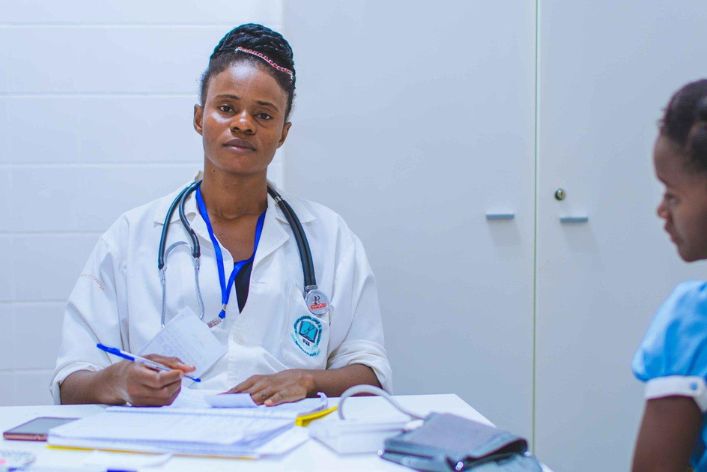The Inspiring Journey of Nigerian Women in Healthcare
Last Updated on September 22, 2023
Introduction
Throughout history, Nigerian women have played a crucial role in healthcare, defying traditions and stereotypes to achieve remarkable feats in the field.
Their contributions to medicine and healthcare have been instrumental in shaping the industry and improving health outcomes in Nigeria and beyond.
It is important to highlight their struggles, accomplishments, and contributions to inspire future generations of Nigerian women to pursue careers in healthcare.
Read: Challenges and Opportunities in Nigeria’s Medical Profession
Challenges Faced by Nigerian Women in Healthcare
Inspiring Nigerian women have made significant progress in the healthcare industry, but it hasn’t been easy.
They’ve faced countless challenges ranging from gender bias and discrimination to socioeconomic factors and lack of access to education and resources.
Here are some of the major challenges Nigerian women face in the healthcare industry:
Gender Bias and Discrimination
- Nigerian society is patriarchal, which engenders discrimination against women in various ways.
- Women in healthcare are less respected and perceived as less competent than their male counterparts.
- Gender-based violence is a common occurrence in healthcare facilities against female healthcare professionals.
- Male healthcare workers are often prioritized over their female counterparts for promotions and leadership positions.
- Women are stereotyped as being uncommitted to their profession due to their perceived primary responsibility for family and child-rearing.
Socioeconomic Factors
- Several socioeconomic factors indirectly impact the ability of women to thrive in the healthcare industry, including poverty, illiteracy, lack of autonomy, and poor living conditions.
- Women face significant inequalities in the distribution of health services, which reduces their access to healthcare.
- Lack of women’s rights, including spousal rights, family planning, and education, restricts women’s choices and opportunities in the health sector.
- Women often work multiple jobs to keep the household running, leaving them with little time for professional development.
Lack of Access to Education and Resources
- Access to education is limited for women in Nigeria, particularly at the tertiary and post-graduate levels, leading to a lower representation of women in STEM fields.
- Women also have limited access to training, professional development, and mentorship opportunities in healthcare.
- The healthcare industry is male-dominated, leading to a lack of female role models and mentors for aspiring healthcare professionals.
- Financial constraints prevent women from accessing resources such as technology, research materials, and equipment that are essential for professional development and growth.
Despite facing challenges, Nigerian women in healthcare excel and inspire. They’ve shown resilience, defying societal norms to save lives. Their critical role, particularly during the COVID-19 pandemic, is increasingly recognized.
These frontline professionals risk their lives daily, proving their worth. However, we need to support women’s entry, retention, and growth in healthcare. Addressing gender-based discrimination, improving education and training access, and providing growth resources are vital.
We must ensure equal growth opportunities, and empower these women as leaders, and decision-makers. Addressing these challenges fosters an equitable society and improves healthcare outcomes.
Read: Impact of Digital Revolution on IT Jobs in Nigeria
Pioneers in Nigerian women’s healthcare
Nigeria has made significant strides in women’s healthcare, thanks to remarkable pioneers who led the charge.
Dr. Ameyo Adadevoh played a critical role in containing the Ebola outbreak by identifying and isolating patients, saving countless lives.
Professor Olikoye Ransome-Kuti expanded healthcare services in rural areas and launched immunization programs, reducing vaccine-preventable diseases.
Professor Ngozi Nwokoma, Nigeria’s first female oncologist, advocates for cancer awareness, early detection, and treatment, improving patient outcomes.
These pioneers have left an indelible mark on Nigeria’s healthcare, inspiring a new generation of healthcare workers.
Challenges remain, including inadequate healthcare services and limited access for women. Increased funding is needed for healthcare infrastructure and research.
Despite these obstacles, Nigeria’s healthcare system is gradually improving, thanks to women like Dr. Adadevoh, Professor Ransome-Kuti, and Professor Nwokoma.
Their hard work opens doors for future generations to excel in healthcare. Nigerian women in healthcare display resilience, courage, and determination, shaping the country’s healthcare landscape for a healthier future.
As Nigeria continues to build and expand its healthcare system, pioneering women will play a vital role in ensuring access for all Nigerians.
Read: A Career in Cardiology: A Heartbeat of Nigerian Healthcare

Nigerian women in medical research
Nigerian women have made significant progress in the medical research field. Dr. Morenike Ukpong-Folayan is a renowned researcher on HIV/AIDS and reproductive health.
Another proficient biomedical scientist is Dr. Adaobi Eziyi, working on vaccines for infectious diseases, with a focus on malaria control in Nigeria.
Dr. Oluyinka Olutoye is a fetal surgeon and a passionate advocate for maternal and child health. Her work involves pioneering surgical approaches for pregnant women with fetal complications.
Despite facing gender bias and stereotypes in the healthcare industry, these Nigerian women continue to make strides forward in their respective fields.
Moreover, their determination and efforts have helped pave the way for other women in medical research in the country.
As Nigeria continues to grow and evolve, it is inspiring to witness the contributions and impact of its female healthcare professionals.
Read: Pediatrics in Nigeria: Shaping the Future of Healthcare
Nigerian Women in Leadership Positions in Healthcare
When it comes to healthcare in Nigeria, there are numerous women who have taken up leadership positions and have made impressive strides in the industry. Here are some notable figures:
Dr. Zainab Shinkafi-Bagudu
Dr. Zainab Shinkafi-Bagudu is the founder of the Medicaid Cancer Foundation, an NGO that raises awareness on cancer and provides support for cancer patients in Nigeria.
She is also the wife of the Kebbi State Governor. Through her foundation, Dr. Shinkafi-Bagudu has provided state-of-the-art equipment to cancer centers and has sponsored the treatment of indigent cancer patients.
Her efforts have positively impacted the lives of many Nigerian women.
Dr. Ngowari Diminas
Dr. Ngowari Diminas served as the Minister of State for Health under President Goodluck Jonathan’s administration.
She is also a strong advocate for health equity and has been instrumental in implementing policies aimed at improving healthcare access for marginalized populations.
She has championed initiatives such as the Saving One Million Lives program and the Primary Healthcare Under One Roof policy.
Her dedication to public health has earned her numerous accolades and recognition both nationally and internationally.
Read: Occupational Therapy Schools: Where to Study in Nigeria
Professor Titilayo Aderibigbe
Professor Titilayo Aderibigbe is the Dean of the Faculty of Basic Medical Sciences at the University of Lagos.
She is also a fellow of the Nigerian Academy of Science. As a researcher and academic, she has made significant contributions to the study of diabetes and has published numerous papers in local and international journals.
In addition to her academic work, she also participates in community outreaches to raise awareness on non-communicable diseases such as diabetes.
Other Nigerian women who have made significant strides in healthcare leadership include Dr. Carie-Anne Brown, a physician who founded the African Research Group on Cancer and serves as the Executive Director of the African Cancer Foundation, and Dr. Bolaji Fapohunda, a public health specialist who has worked extensively on maternal and child health projects both in Nigeria and globally.
The contributions of these Nigerian women in healthcare leadership serve as an inspiration to many young women aspiring to make a difference in the industry.
They demonstrate that with dedication, hard work, and a commitment to making a positive impact, it is possible to effect change and create a brighter future for all.
Read: Emerging Trends in Nigeria’s Healthcare Job Market
Conclusion
Finally, the inspiring journey of Nigerian women in healthcare is a testament to their tenacity and resilience in the face of adversity.
Nigerian women have made significant strides in healthcare, transitioning from subordinate roles to becoming leaders and change agents.
Limited access to education and discriminatory practices hinder the professional growth of Nigerian women. As we celebrate their accomplishments in healthcare, let’s actively support their advancement and work towards eliminating barriers to their success.
Together, we can create a more inclusive and diverse healthcare system that values the contributions of all members, regardless of their gender or background.


